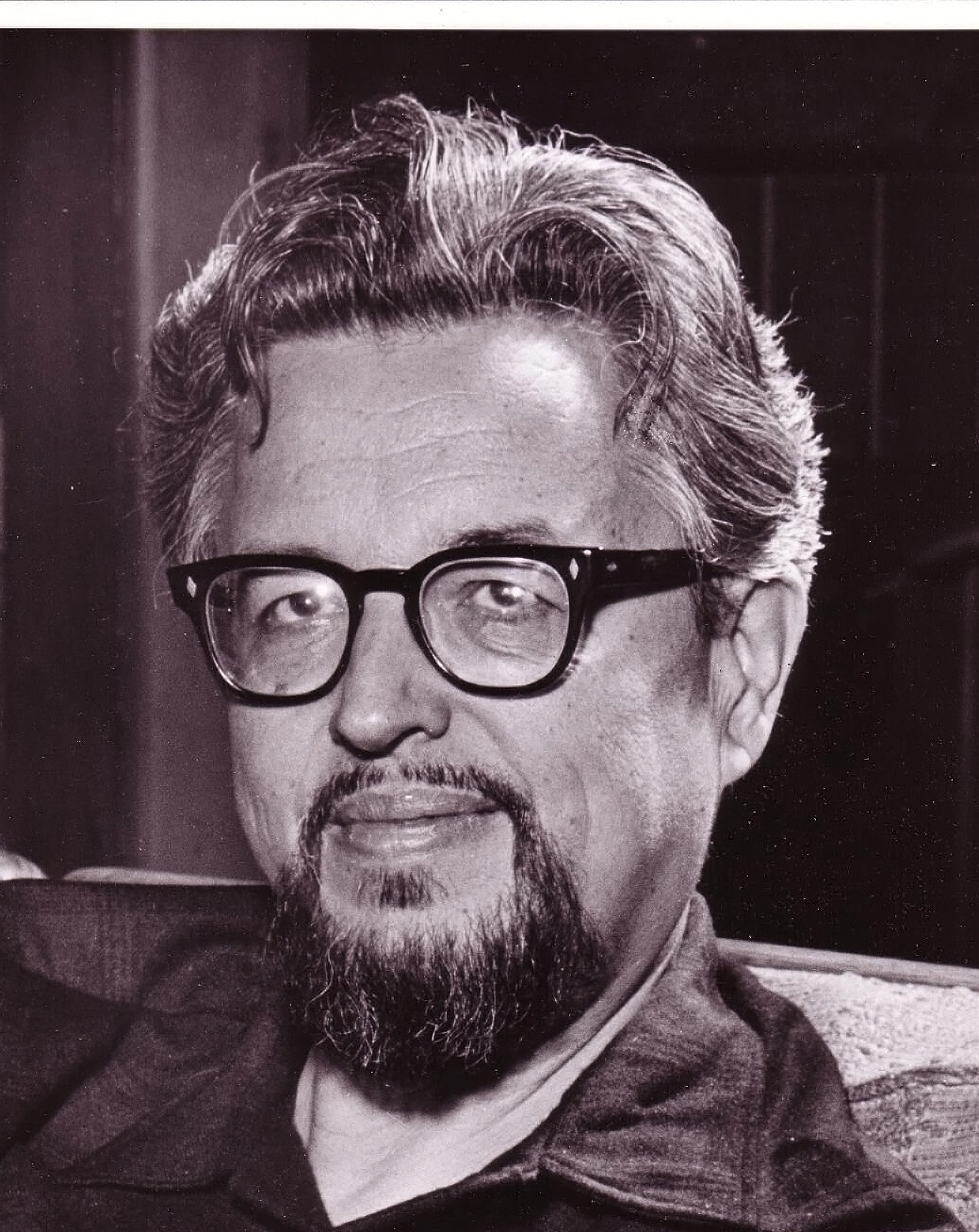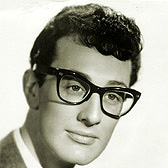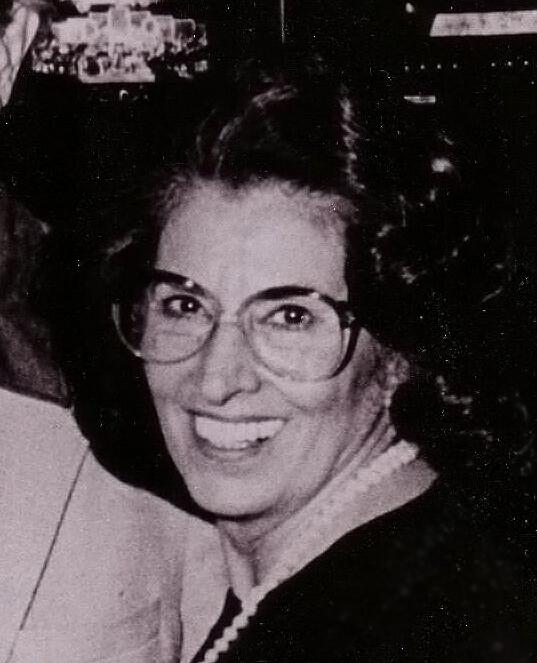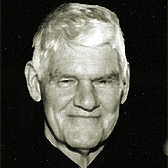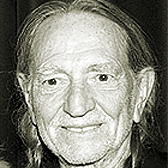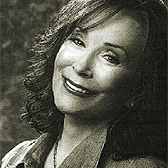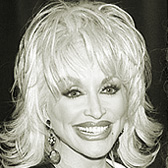
Timeless songs and memorable vocals have made her the most successful female country artist of all time
Dolly Parton
InducteeSole writer of over 700 songs, including her own hits
* Dolly Parton was also the 2007 recipient of The Johnny Mercer Award, the SHOF’s highest honor
Throughout a career that has spanned four decades, Dolly Parton has contributed countless treasures to the world of music entertainment: songs such as "Jolene," "Coat of Many Colors," and "I Will Always Love You;" acting performances such as her Oscar-nominated film debut in 9 to 5, as well as roles in motion pictures like The Best Little Whorehouse in Texas and Steel Magnolias; her 1994 autobiography, Dolly: My Life and Other Unfinished Business; and her Smoky Mountain heritage-preserving entertainment park located in Pigeon Forge, Tennessee, just miles from where she grew up.
Dolly Parton's remarkable life began very humbly. Born January 19, 1946 on a farm in Sevier County, Tennessee, Dolly is the fourth of twelve children born to Robert Lee and Avie Lee Parton. At age nine she appeared on Sevierville station WSEV, and by the age of ten, Dolly was already performing professionally in nearby Knoxville, Tennessee, on both television and radio.
Lest anyone at home doubted her driving ambition to make it as a country singer, she proved it by moving to Nashville the day after she graduated from high school in 1964. By 1967, at age 21, she was on her way to stardom when Porter Wagoner hired her to join the cast of his popular syndicated television show, right around the time she had her first big hit single - the prophetically ironic "Dumb Blonde."
Dolly never looked back. In the 1970's, as her musical horizons expanded to encompass both the deeply rooted sounds of traditional country ("My Tennessee Mountain Home") and the contemporary ones of progressive country ("Light of a Clear Blue Morning"), Parton's audience expanded as well. With 1977's breakthrough hit "Here You Come Again," she successfully erased the line between country and pop music without noticeably altering either her music or her image. "I'm not leaving country," she said to those worried about her future path, "I'm just taking it with me." Over the last twenty years, through often exhausting and widely varied film, television, concert and recording work, the woman once dubbed the "hillbilly Mae West" has remained an internationally renowned superstar grounded by a deep-seated and humbly rooted sense of tradition and place.
Dolly Rebecca Parton was born the fourth of twelve children to a hard working farm couple, Robert Lee and Avie Lee Parton, who struggled to make ends meet in the impoverished East Tennessee hills of Sevier County at the foothills of Great Smoky Mountain National Park. This hard, rural (or "country") life was the foundation for Dolly's career, and it gave her the opportunity to study life in all its forms; sadness, joy, heartbreak, rapture and serenity. It was during her early childhood that Dolly began assembling the wealth of observations and experiences that eventually became her songwriting arsenal. Her father recalls that Dolly was singing almost before she could talk. By age six Dolly was singing in her grandfather's church, and at seven, she started playing guitar. Dolly made her first guitar from an old mandolin and two bass guitar strings. When she was eight years old, her uncle gave her her first real guitar, a Martin. Dolly says about making music, "It's all I've ever known."
Dolly writes about love, family, memories and her sense of God. "I was brought up in the Church of God," she said, "and it's a very free church." Perhaps it was the spirit of the Sunday services and the revivals that pointed Dolly in the direction of her distinctive vocal style. Her singing is an example of spirit and unrestrained freedom. It is dynamic and powerful, yet is tender and deeply meaningful.
"I don't know if my style has description," Dolly said, "except that it's just me. It's my soul and my feelings. In high pitch! I think what soul I have in my voice, the feeling that's there, is strictly from my church-singing days. I get a feeling from singing gospel songs that I never get from singing anything else. But that same soul and feeling and sincerity cross over into anything I sing. But I think the expression and all that sort of thing definitely comes from those early singing experiences."
At the age of ten, Dolly was performing on a local television program called "The Cas Walker Show" in Knoxville, Tennessee. Dedicated to her first job, Dolly performed on every broadcast she could fit into her schedule, sometimes taking an unauthorized vacation from school. She worked during Easter vacation, on Thanksgiving, and all summer long. When she was thirteen, Dolly made her first record for Gold Band Records. She remembers, chuckling, "Gold Band was a small label in Lake Charles, Louisiana, and the song I recorded was called 'Puppy Love.' That record didn't do anything, because it wasn't good at all! But it was a start, and I had big dreams."
Dolly began Sevier County High School in 1959. She joined the high school band, and Judy Ogle (Dolly's best friend from early childhood to the present day) remembers, "I was in the band with Dolly, and we both played drums. We were assigned to a kind of practice period in the band room before regular band practice. We were supposed to use the time to learn how to read music and all that, but we never did. Dolly always went to the piano and wrote songs during our practice period."
Looking back on those days, Dolly says, "I've always believed things would go well, and I dreamed that they would even before I was in high school. I always wanted to be a star. It just seemed natural to me. I now know, of course, that I've been very lucky. But then I never got discouraged or disheartened - I knew it would be there. I felt I could out step anything that came in my way. I really think that's why I've been successful because I have so much determination and believed so strongly that everything would turn out good."
Dolly left for Nashville the day after graduating from high school. On her first afternoon there, she met a young man who was to become her husband, Carl Dean. Two years later, in May 1966, they were married.
Carl is reluctant to appear at public functions with Dolly and insists on maintaining a strict separation between the different worlds he and Dolly move in. To Dolly, Carl has always maintained the proper perspective on things. "My husband is a very home-based type of person. He’s very moral and the most unselfish person I've ever known. He's very deep and very witty. He's good for me because he's so different in nature from me."
Within a short time after arriving in Nashville, Dolly signed a contract with Fred Foster and Monument Records. Her first records after her move to Nashville were not what she had expected ...or what she wanted. "They recorded me 'rock'!" Dolly exclaimed. "I guess they figured my voice was so weird that the country people would never go for it."
Then Owen Bradley flipped over a demo of "Put It Off Until Tomorrow," on which Dolly had done the harmony. "He asked me if he could get me to sing harmony on the record like I did on the demo," Dolly said. "Of course I was signed up with Monument, but they were just good enough to let me do it. Of course, I couldn't let anyone use my name. They didn't put my name on the record, but my voice was in there. Everybody got to callin' and askin' who the other singer was. So that gave me all I needed to fight back and say that I was going to do country or I was going to leave."
Fred Foster ran across an up-tempo Curly Putman song called "Dumb Blonde," and Dolly recorded it. It became her first hit, and she followed this with one of her own songs, "Something Fishy." And Dolly Parton was on her way.
Dolly's career really took off in 1967 when country music superstar Porter Wagoner began featuring her on his popular syndicated television show. Dolly's dazzling appearance and eye-catching style, along with her unusual voice and heart-tugging songs, made her an audience favorite. And she gained nationwide exposure as a part of the most successful syndicated country music television show in history. "The Porter Wagoner Show" would expose Dolly to over 45 million people in more than 100 markets and attract the attention of record executives at RCA. Dolly and Porter were twice the Country Music Association's Vocal Duo of the Year and together they had 14 Top Ten hits between 1967 and 1980. Hit duets with Wagoner led to a long and successful recording relationship with RCA Records, and Dolly quickly blossomed into one of the best-selling country artists in music history.
But in 1974, Dolly decided it was time to make a major change in her career's direction, and she ended her working relationship with Wagoner. She began a successful solo career in country music that had her well on her way to becoming a superstar entertainer. It was during this time that she had # 1 hits with such self-penned classics as "Jolene" and "I Will Always Love You."
As a solo artist, Parton also snared the CMA's Female Vocalist of the Year Award two years in a row; and in 1978, the Association voted her it's Entertainer of the Year.
In 1980, Dolly began another phase in her growing career by making her film debut in the movie 9 to 5, which she starred in with Jane Fonda and Lily Tomlin. 9 to 5 was a huge hit and garnered Dolly several award nominations. In the next several years, she starred in The Best Little Whorehouse in Texas (1982) with Burt Reynolds, Rhinestone (1984) with Sylvester Stallone, and Steel Magnolias (1989) with Julia Roberts, Sally Field, and Shirley MacLaine, again receiving rave reviews. Then in 1992, she starred with James Woods in Straight Talk. About her movies, Dolly says, "Some people say I'm a good businesswoman, and I appreciate the compliment, but how smart can I be? I've done three musicals with three men who can't sing! Now, I loved working with all my leading men, but my biggest box office successes have been with other actresses. Shirley MacLaine says we all got along so well in Steel Magnolias because we were all the same person in another life. I told Shirley I don't believe in reincarnation and I didn't believe in it when I lived before either."
On May 3, 1986 Dolly saw another of her cherished dreams become a reality: the opening of Dollywood, an entertainment theme park to preserve her Smoky Mountain heritage and East Tennessee lifestyle. Dolly's plan to honor her beloved Great Smoky Mountains and help create more jobs for her neighbors and family there, has been an incredible success. Dollywood has grown to be the state of Tennessee's # 1 attraction with over two million visitors annually, and currently employs approximately 1,900 people during its peak season. It is one of the fastest growing theme parks in America, and ranks among the nation's top 30 theme parks. When Dollywood opened for its 13'" season in April 1998, Dolly was on hand to unveil the park's new signature show: a Broadway-style music production called Paradise Road: The Life and Songs of Dolly Parton.
On May 3, 1987, Dolly dedicated the Dolly Parton Wellness and Rehabilitation Center of Fort Sanders Sevier Medical Center. She has provided generous grants to and serves as the national chairperson for the Dr. Robert F. Thomas Foundation, which supports the Center. Dr. Thomas is the physician who attended her birth. In April 1997, Dolly and her Dollywood entertainment park made a large donation to Fort Sanders Sevier Medical Center to go towards the hospital's Women's Center project, which contains a state-of-the-art birthing unit named after Dolly in recognition of her many contributions to her home county.
In 1988, Dolly and Dollywood founded the Dollywood Foundation, a nonprofit public organization, to support education and improve the quality of life for all children in Sevier County, Tennessee. The Foundation’s first major project was the five-year "Buddy Program," designed to encourage students to complete high school; this program is credited with helping to reduce the dropout rate from 35 percent to 14.6 percent in the class of 1993. Currently the Foundation funds the Imagination Library program, which gives every preschooler in Sevier County a book each month from the time he/she is born until the child reaches kindergarten.
Dolly and Dollywood also worked with the city at Pigeon Forge, Tennessee, to create a "show business zone" centered along a major four-lane highway aptly named Music Road. Several music the theaters have been built on Music Road over the past few years. One of Dolly's interests in her home county of Sevier is the Dixie Stampede Dinner and Show, a Dollywood Production that has locations in Pigeon Forge, TN, Myrtle Beach, and Branson MO.
During the 1970's, Dolly had her own network show Dolly, and finding the name successful, followed it in 1987 with another series for ABC-TV with the same title.A Smoky Mountain Christmas with Lee Majors and her 1984 Christmas special with Kenny Rogers, A Christmas to Remember, were top winners in the national ratings, as was her 1990 ABC special, Dolly Parton... Christmas at Home.
Showing another side of her talent, Dolly starred in her first dramatic role on television in 1992 in an NBC-TV World Premiere Movie-of-the-Week - Wild Texas Wind with Gary Busey. In 1997 she starred with Roddy McDowall in another made for TV movie, Unlikely Angel.
Dolly did a gospel special in 1999 for TNN in conjunction with her album Precious Memories. Proceeds from the album benefit her Dollywood Foundation. Also in 1999, she starred in a movie on LIFETIME called Blue Valley Songbird. This movie was based on her song "Blue Valley Songbird," which was on her Hungry Again album.
Albums like Here You Come Again, Heartbreaker, Great Balls of Fire and others sold in the multimillions. Hit singles like "9 to 5," "Here You Come Again," "Two Doors Down," "Baby I'm Burning," and "Islands in the Stream" topped both the country and pop charts, while Trio, an album collaboration between Dolly and her longtime friends Linda Ronstadt and Emmylou Harris, climbed to the top 10 of pop album charts and sold more than a million copies in 1987. Trio II was released in February 1999.
Of all of Parton's songs, "I Will Always Love You" has had the most curious history. She first recorded it in 1973, and it grew into a No. 1 country hit the following year. In 1982 she recorded it again, and again it went No.1, making Parton the first artist ever to score two No.1's with the some song. Then, in 1992, Whitney Houston recorded it for the soundtrack of her film, The Bodyguard. This became the most popular version of the song. It stayed No.1 on the pop charts for 14 weeks and escalated into a worldwide hit. As a result, it was BMI's Most Performed Song Of The Year in 1993.
In 1989, Dolly returned to Nashville and the resulting album was White Limozeen. Her 1991 album Eagle When She Flies achieved platinum status, featuring the chart-topping title track and her hit duet "Rockin' Years" with Ricky Van Shelton, which was written by her younger brother Floyd Parton. Her Slow Dancing With the Moon album featured duets with countrv music's new generation of stars, including vocals by Billy Ray Cyrus. Mary Chapin Carpenter, Tanya Tucker and Kathy Mattea on the popular single "Romeo" with proceeds benefiting the American Red Cross.
In 1993, Honky Tonk Angels teamed the queens of country music - Dolly, Loretta Lynn and Tammy Wynette - for a landmark album performing songs of love and remembrance. Dolly once again called on other country singers to round out the album's all-star trio as they pulled some of country music's classics out of the attic. Dolly, who conceived Honky Tonk Angels as a tribute to the great Kitty Wells, teamed the album's trio of ladies with Kitty to perform a rendition of Kitty's 1955 classic hit "It Wasn't God Who Made Honky Tonk Angels." Dolly, Loretta and Tammy also turn back the hands of time when they add their eloquent harmony to the late Patsy Cline's "Lovesick Blues," originally recorded by the great singer in 1960.
In 1994 Dolly recorded a live acoustic project at Dollywood, "Heartsongs, Live From Home". In 1995 she released "Something Special" almost exclusively acoustic arrangements including a duet with Vince Gill of "I Will Always Love You".
Her 1996 album Treasures featured Dolly's favorite songs from all types of music, giving her plenty of room to explore the numerous facets of her multisided musical personality - with country classics like "Behind Closed Doors" and "Satin Sheets" to pop favorites including "Peace Train" and "Walking on Sunshine."
In 1998 Dolly returned to her country roots with Hungry Again. She returned to her Tennessee Mountain Home and prayed and fasted before beginning to write the songs for the album. As she went between her mountain retreat and her lake cottage in Nashville over a three-month period, she wrote 37 songs. The result is a powerful, yet touching record that combines country, folk and gospel. Her video of the single "Honky Tonk Songs" was the most requested video on CMT. As a result she was the Showcase Artist of the month for November in a time when older country artists don't get much, if any, radio/TV exposure.
In 1999 Dolly released her first total bluegrass album, The Grass Is Blue. It contains several traditional bluegrass songs along with some new songs written by Dolly. She was very proud to be accepted by the bluegrass community with this album. And she was very honored to win Album of the Year at the International Bluegrass Music Association Awards in October 2000 as well as the Grammy for Best Bluegrass Album in February 2001.
The British Country Music Association awarded Dolly their Country Legend Award in 1997. In 1996 the Country Music Association awarded her their Vocal Event of the Year Award for her duet with Vince Gill of "I Will Always Love You". Also in 1996 the Nashville Symphony Association gave her their Harmony Award.
In 1994 The TNN/Music City News Awards honored her with their Living Legend Award and the Minnie Pearl Award. The Country Music Association honored Dolly in 1993 with a special television tribute and its first ever "Country Music Honors Award" for her accomplishments as a performer, songwriter, actress, recording artist and humanitarian. She is a four-time Grammy Award winner and has earned eight Country Music Association Awards. Dolly has received ten TNN/Music City News Awards, which are fan-based awards.
Dolly also is the recipient of five Academy of Country Music Awards and three People's Choice Awards, while her "Islands in the Stream" single with Kenny Rogers earned an American Music Award for Best Duo Performance. In addition, Dolly received an Oscar nomination for the film 9 to 5. She even has a hybrid tea rose named after her.
Dolly has been inducted into the East Tennessee Hall of Fame and the Small Town of America Hall of Fame. She has her own star on the Hollywood Walk of Fame, as well as the Nashville Star Walk for Grammy Award winners.
Perhaps her most cherished honor, however, is a bronze sculpture of herself that the citizens of her hometown erected on the courthouse lawn in Sevierville, Tennessee.
The phenomenon of Dolly Parton continues to flourish, as she remains one of America’s true superstars.
Scroll to Discover Dolly Parton Connections


